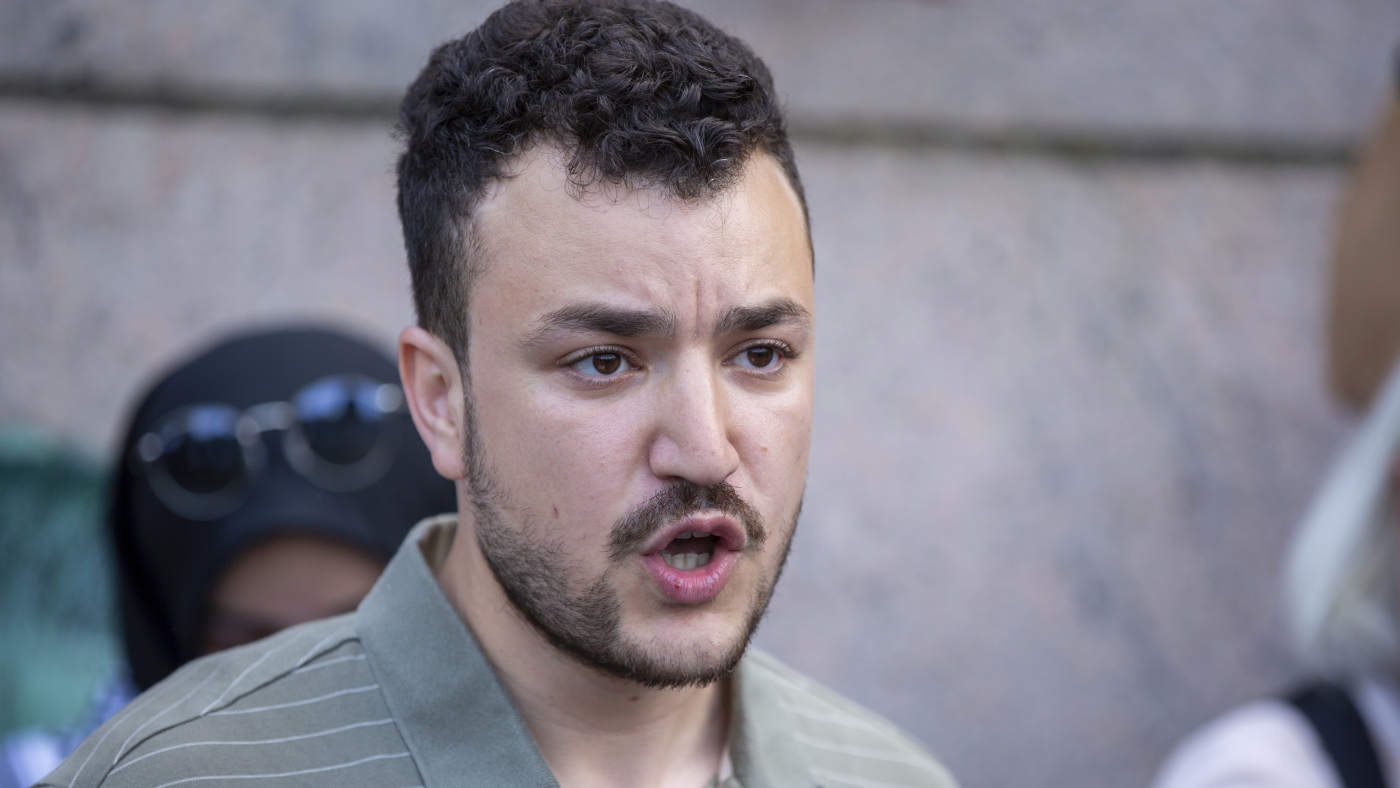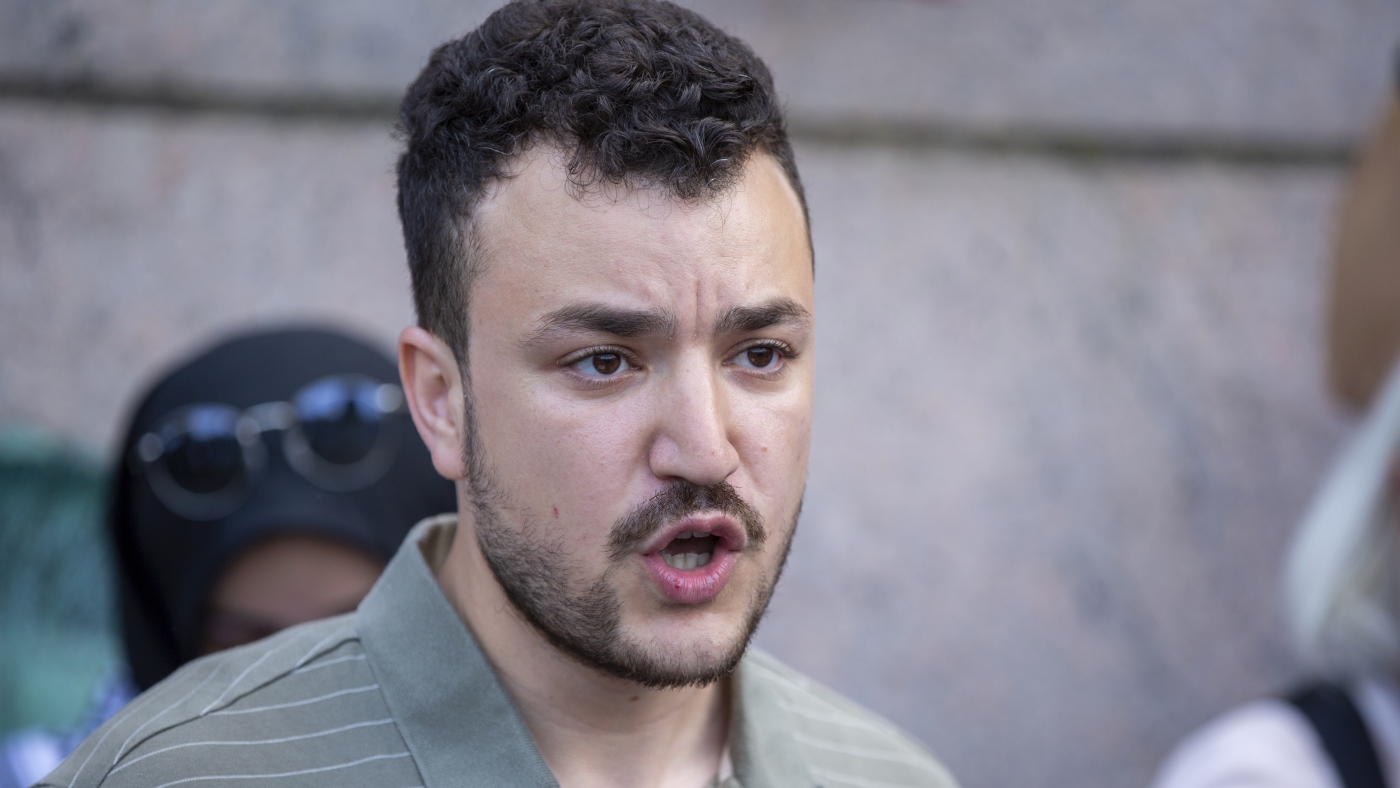Introduction
In the heart of New York City, a legal storm brewed, centering around Mahmoud Khalil, a former Columbia University graduate student and a vocal pro-Palestinian activist. His arrest and subsequent detention by Immigration and Customs Enforcement (ICE) ignited a firestorm of controversy, sparking debates about immigration enforcement, political activism, and the boundaries of governmental power. This report delves into the intricate timeline of events, the legal arguments presented, and the broader implications of this high-stakes case.
Initial Detention and Government’s Stance
The Arrest
Mahmoud Khalil’s life took an abrupt turn in March when ICE agents apprehended him in New York City. His supporters and civil rights advocates were immediately alarmed, suspecting that his outspoken activism in support of Palestinian rights had made him a target. The timing of his arrest, coming on the heels of his involvement in pro-Palestinian protests at Columbia University, only deepened these suspicions.
The Government’s Justification
The Department of Justice (DOJ) stood firm in its defense of Khalil’s detention, citing immigration violations as the primary reason. However, the specifics of these violations remained shrouded in ambiguity, fueling speculation about the true motives behind his arrest. Critics argued that the detention was a thinly veiled attempt to silence dissent, alleging violations of Khalil’s First Amendment rights to freedom of speech and assembly.
The Judge’s Order for Release: A Pivotal Moment
The Legal Battle
The crux of the legal saga revolved around the legitimacy of Khalil’s continued detention. After months of deliberation, a federal judge in New Jersey ruled in Khalil’s favor, ordering his release from ICE custody. This decision marked a significant blow to the Trump administration’s efforts to detain and deport him.
The Impact of the Ruling
The judge’s decision was hailed as a triumph for civil liberties, with news outlets nationwide covering the story. The ruling stipulated that Khalil could be released on bail from a Louisiana immigration detention facility, where he had been held for over three months. This development raised hopes that Khalil might finally secure his freedom, but the legal drama was far from over.
ICE’s Evolving Strategy and Continued Detention
A Shift in Tactics
Despite the judge’s clear directive, ICE was not ready to concede. The agency shifted its strategy, attempting to justify Khalil’s continued detention on new grounds. This maneuver effectively stalled his release, prompting further legal challenges and accusations of governmental bad faith.
The Judge’s Response
The judge, upon learning of ICE’s strategic pivot, ruled that Khalil would remain in detention. This decision highlighted the agency’s efforts to circumvent the court’s order, raising serious questions about ICE’s commitment to upholding the rule of law and respecting judicial decisions.
The Core Legal and Ethical Concerns
Political Motivation
At the heart of the debate was the question of whether Khalil’s activism had played a role in his detention. Critics argued that ICE had specifically targeted him due to his pro-Palestinian views, violating his First Amendment rights. This allegation underscored the broader concern about politically motivated targeting within the immigration system.
Due Process and Fair Hearing
Another critical argument centered on Khalil’s due process rights. His supporters contended that he had not been afforded a fair hearing and that the government had failed to provide sufficient evidence to justify his continued detention. The prolonged nature of his detention, without a clear and compelling justification, further fueled these concerns.
ICE’s Authority and Accountability
The case also raised broader questions about the scope of ICE’s authority and the potential for political abuse. The agency’s willingness to shift its legal strategy in an attempt to circumvent a judge’s order highlighted the need for greater transparency and accountability in ICE’s enforcement practices.
The Trump Administration’s Context
A Pattern of Aggressive Enforcement
The case of Mahmoud Khalil unfolded against the backdrop of the Trump administration’s aggressive immigration enforcement policies. The administration often prioritized the deportation of individuals perceived as critical of the government or associated with controversial causes. This context underscored the concerns about politically motivated targeting.
Perceived Intimidation and Repression
Khalil’s supporters argued that his detention was part of a larger pattern of intimidation and repression aimed at silencing dissent and suppressing pro-Palestinian activism. The repeated references to the administration’s involvement highlighted the perceived political dimension of the case.
A Victory, But Not a Complete Resolution
The Complexities of the Immigration System
While the initial judge’s order for release was a significant victory for Khalil and his advocates, the subsequent actions by ICE demonstrated the complexities of navigating the immigration system. The agency’s shifting strategy and attempts to circumvent the court’s ruling underscored the challenges faced by individuals fighting deportation, particularly those who are perceived as politically sensitive.
The Importance of Safeguarding Rights
The case served as a stark reminder of the potential for abuse within the immigration enforcement system and the importance of safeguarding the rights of immigrants and activists. It also highlighted the crucial role of the judiciary in protecting civil liberties and holding the government accountable.
A Precedent in the Making
Lasting Implications
The legal battles surrounding Mahmoud Khalil’s detention are likely to have lasting implications. The case has already drawn attention to the potential for politically motivated targeting within the immigration system and the need for greater transparency and accountability in ICE’s enforcement practices.
A Critical Moment
The judge’s initial order for release and the subsequent attempts by ICE to circumvent it could set a precedent for future cases involving activists and individuals facing deportation. It reinforces the importance of robust legal challenges to immigration enforcement actions and the need for courts to carefully scrutinize the government’s justifications for detention. The case of Mahmoud Khalil, therefore, stands as a critical moment in the ongoing debate over immigration, activism, and the balance between national security and civil liberties.
Conclusion: The Unfinished Battle
The case of Mahmoud Khalil is far from over. As the legal battles continue, so too does the fight for justice and accountability. The story of Khalil serves as a powerful reminder of the resilience of the human spirit and the enduring struggle for freedom and fairness in the face of adversity. The outcome of this case will undoubtedly shape the future of immigration enforcement and the protection of civil liberties in the United States. The world watches, waiting to see how this legal saga unfolds and what precedents it will set for the years to come.








